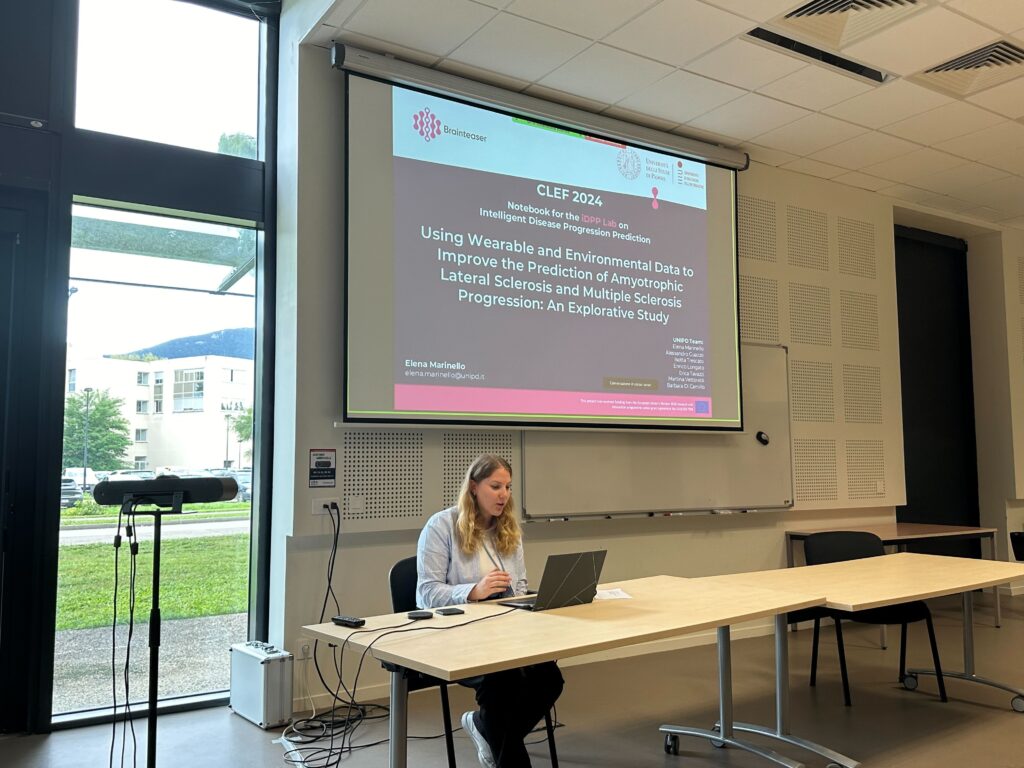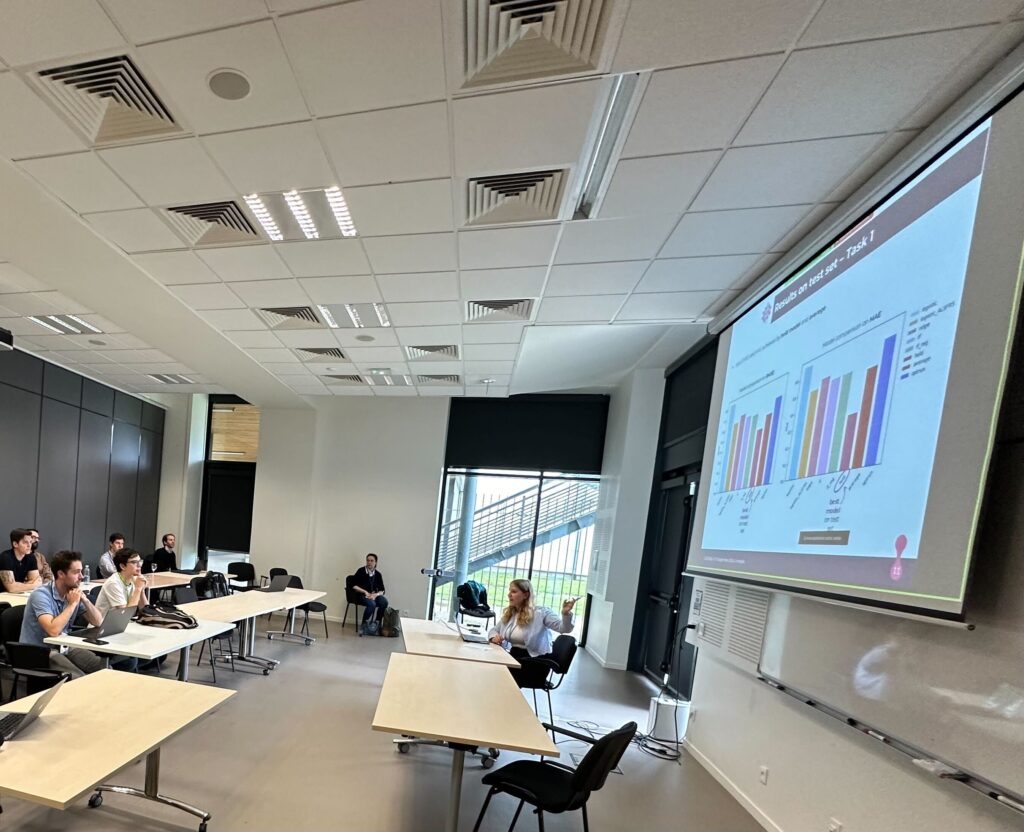Last week, we had the pleasure of participating in the 15th Conference and Labs of the Evaluation Forum (CLEF), held from 9-12 September in Grenoble, France. As part of the iDPP Challenge, we presented our work titled “Using wearable and environmental data to improve the prediction of amyotrophic lateral sclerosis (ALS) and multiple sclerosis (MS) progression: an exploratory study” (E. Marinello, A. Guazzo, E. Longato, E. Tavazzi, I. Trescato, M. Vettoretti, B. Di Camillo), developed within the BRAINTEASER H2020 project. The paper, included in the CLEF 2024 Working Notes, can be accessed here: https://ceur-ws.org/Vol-3740/paper-125.pdf.
Our study focuses on leveraging sensor data to enhance predictive models for ALS and MS progression, with the aim of assisting clinicians in making more informed therapeutic decisions. We developed machine learning approaches to predict ALSFRS-R scores in ALS patients and relapses in MS patients using wearable and environmental data. The results were promising, demonstrating improved prediction accuracy when sensor data were incorporated.
Participating in the iDPPChallenge provided a great opportunity to share our findings on how data science can enhance clinical decision-making in neurodegenerative diseases



